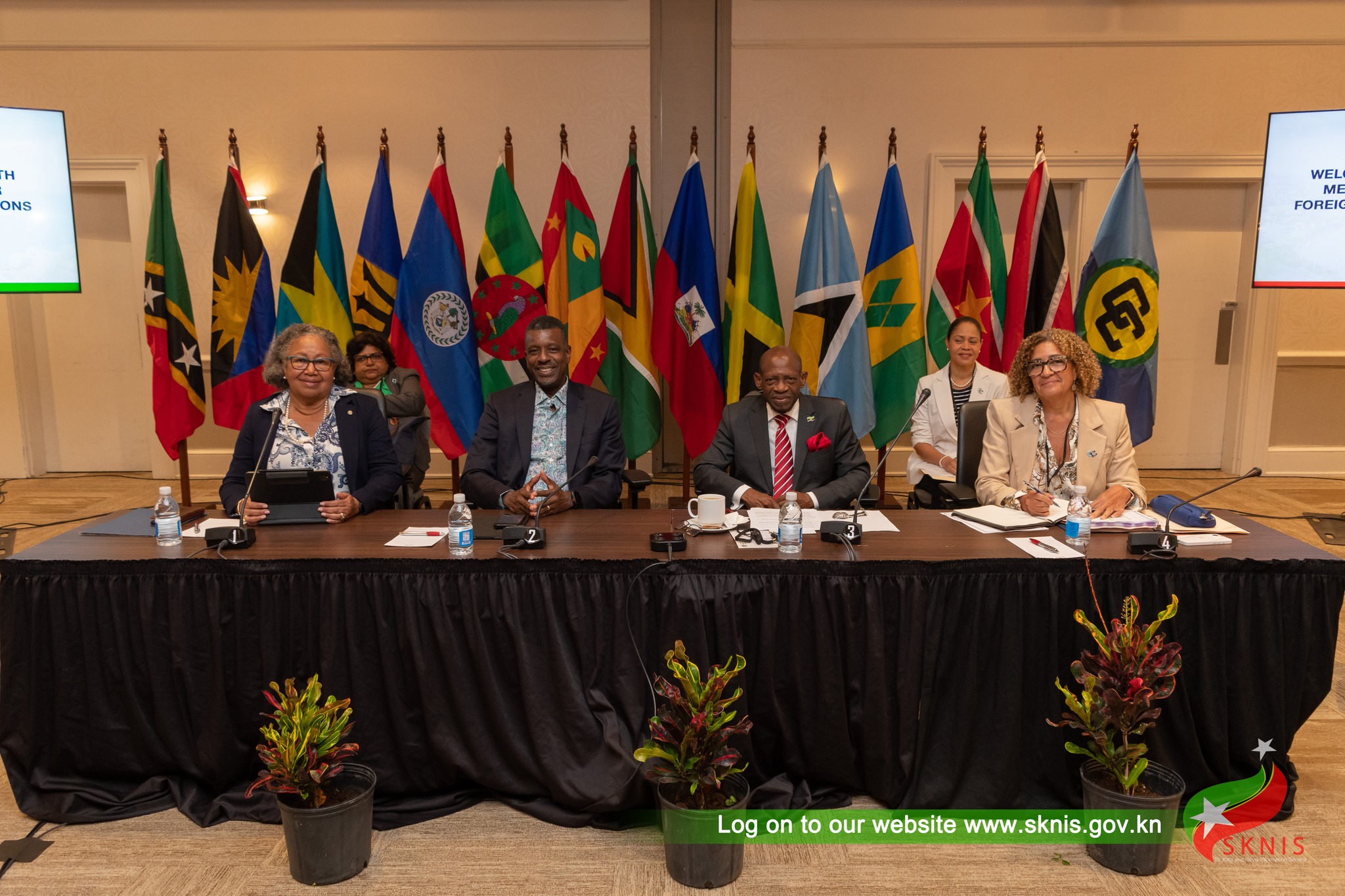CARICOM Foreign Ministers Acknowledge the Expertise and Leadership of Dr. Denzil Douglas of Saint Kitts and Nevis
The 28th Regular Meeting of the Council for Foreign and Community Relations (COFCOR) commenced on May 8, 2025, in Basseterre, Saint Kitts and Nevis, marking a significant transition in leadership and a critical juncture for the Caribbean Community (CARICOM) amidst a turbulent global landscape. The picturesque setting of the St. Kitts Marriott Resort provided a serene backdrop to the weighty discussions on foreign policy and regional cooperation, even as the meeting’s agenda acknowledged the complex geopolitical and economic realities facing the region. The Right Honourable Dr. Denzil Douglas, Saint Kitts and Nevis’ Minister of Foreign Affairs, formally assumed the COFCOR chairmanship, taking the reins from his predecessor, the Honourable Vince Henderson of Dominica.
Dr. Carla Barnett, CARICOM Secretary-General, extended a warm welcome to Dr. Douglas, expressing confidence in his ability to steer the Council through the upcoming year. She emphasized the importance of the meeting’s comprehensive agenda, which offered a platform for in-depth dialogue on crucial foreign and community relations matters. This dialogue, she noted, was essential for defining the most effective strategies to ensure the prosperity of all CARICOM citizens. Secretary-General Barnett also expressed gratitude to the outgoing Chair, Minister Henderson, for his dedicated service and leadership during the preceding year.
Minister Henderson, reflecting on his tenure, highlighted the dramatic shifts in the global landscape during the past twelve months. He urged his fellow foreign ministers to approach these changes with courage and a clear sense of purpose. While acknowledging the challenges posed by the evolving global order, he emphasized the opportunity for CARICOM to define its own unique identity and shape its future trajectory. He underscored the importance of this pivotal moment, urging the region to reaffirm its core values and continue advocating for them on the world stage, regardless of the political fluctuations in other nations.
Assuming the mantle of COFCOR Chair, Dr. Douglas acknowledged the significance of the meeting’s setting against the backdrop of the twin-island Federation’s natural beauty. However, he also contrasted this tranquil environment with the turbulent global landscape, marked by the erosion of the rules-based international order and attempts to undermine multilateralism and the rule of law. He noted the increasing fragility of established partnerships and principles, creating the need for a realignment of priorities for many Caribbean nations, even as the lingering effects of the COVID-19 pandemic and international conflicts continue to strain the global economy.
Dr. Douglas underscored the urgency for unity and adaptability within CARICOM to navigate these complex global challenges. He called for a shared vision and mission to weather the current storm and emphasized the need for innovative approaches to achieve regional and national development goals. He stressed the importance of strengthening ties with non-traditional partners while maintaining engagement with existing allies. This multifaceted approach to international relations, he argued, is crucial for the region’s resilience and prosperity in a rapidly changing world.
The 28th COFCOR meeting continued over two days, providing a dedicated forum for discussions on a wide range of critical topics, including regional and international diplomatic relations, security concerns, and development priorities. The meeting served as a vital platform for CARICOM member states to collectively address the challenges and opportunities presented by the evolving global landscape. The change in leadership, coupled with the frank acknowledgment of the prevailing geopolitical and economic realities, signaled a renewed commitment to regional cooperation and a proactive approach to safeguarding the interests of the Caribbean Community. The continued strengthening of partnerships, both traditional and non-traditional, emerged as a key theme, reflecting the region’s determination to navigate the complexities of the international arena and secure a prosperous future for its people.
Share this content:












Post Comment